Pyrite Is a Common Sulfi de Mineral And a Collector Favorite.
If you keep striking a piece of pyrite with a steel hammer, sparks fly and the air is filled with a noxious odor. Perhaps without realizing it, you have discovered the chemical makeup of pyrite: iron (sparks) and sulfur (odor). Tiny bits of iron (Fe) will flash from the heat of friction due to the strike. Sulfur (S) is released at the same time in the form of a gas that has a distinctive “rotten egg” odor.The ancients called it /pyrites lithos—” re stone”.
The Stone that Strikes Fire
Molecules of pyrite are composed of one iron atom and two sulfur atoms. It is the most common of all the sulfides and among the easier ones to identify. It is also a wonderful mineral species to collect because of its fascinating variety of crystal forms, which range from the simplest of cubes to some of the most complex twins and multifaced—as many as 48—crystals! It can form concretions, disks called pyrite “suns”, and other oddities. If you ever decide to collect just one species, you should consider pyrite because of its abundant occurrences and wonderfully varied crystal forms.
Pyrite is found in virtually every rock formation and is particularly abundant in some sulfide mines. Scientists have even found it among the several sulfides produced by the amazing black smoker gushers we have discovered along the boundaries of continental plates, such as those in the Red Sea and Pacific Ocean.
Pyrite forms in the isometric system, which means the simple cube is the basis for its varied crystal forms. Cubes are common, so it is not unusual to see a whole line of simple cubes, ranging in size from the tiniest fraction of an inch to something measuring in inches. At shows, these are o en displayed in a curving line from smallest to largest.
Denne historien er fra November 2016-utgaven av Rock&Gem Magazine.
Start din 7-dagers gratis prøveperiode på Magzter GOLD for å få tilgang til tusenvis av utvalgte premiumhistorier og 9000+ magasiner og aviser.
Allerede abonnent ? Logg på
Denne historien er fra November 2016-utgaven av Rock&Gem Magazine.
Start din 7-dagers gratis prøveperiode på Magzter GOLD for å få tilgang til tusenvis av utvalgte premiumhistorier og 9000+ magasiner og aviser.
Allerede abonnent? Logg på
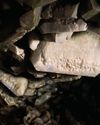
Rockhounding Ohio's Lake Erie Islands
A short ferry boat ride three miles from Ohio’s Lake Erie coastline is South Bass Island, better known as Put-in-Bay or the “Key West of the North.”
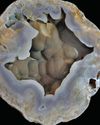
Iowa's Hidden Treasures
Exploring Keokuk Geodes: How They're Made & What's Inside
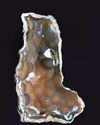
Agatized CORAL
Florida's Collectible State Stone
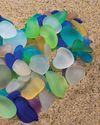
Rockhounding Florida's Beaches
Beachcombing serene stretches of Florida can reveal fascinating finds like fossilized shark teeth, sea glass, quartz, agate and even coral fragments.
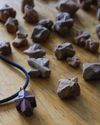
Collecting Staurolite
Hot Spots In Virginia & Georgia
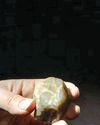
Pecos Valley Diamonds
New Mexico's Ancient Attraction

12 Tips for Rockhounding Tucson's Greatest Shows
Tucson in February becomes the international hub for buying and selling colored gems, rocks, minerals and fossils.
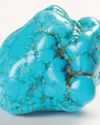
Turquoise in the American Southwest
A Water & Sky Souvenir
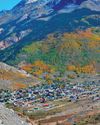
Touring Colorado's MINERAL BELT
It's a Showcase of Mining History & Minerals

Geology &Colorado's Taurish Traiks
Most of Colorado’s tourist trains today were originally constructed in the late 1800s to serve the state’s lucrative mining operations.